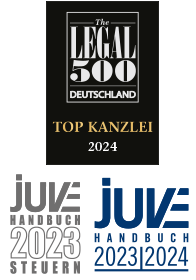Digital Company Tax Audit and Electronic Data Access
Our experience as specialist lawyers for tax law and tax advisers with offices in Cologne assists you in the case of a company tax audit (tax audit, field audit)
The access of company tax auditors to the electronic data of a company has been common procedure for company tax audits. This occurs by way of so-called data access, whereby the auditor must comply with certain statutory requirements and adhere to limitations. The auditor is not permitted to snoop in any data on the computer systems at his own discretion. Data relevant to taxation must be concerned, for which a duty to maintain records and retain the data exists (scope of access to data). The method of data access is also regulated by law. In addition, a legal notice of tax audit must have been served, except for the special case of a sales tax / VAT review (unannounced audit without prior notice) which also permits access to data under a current change of the law.
This brief overview goes to show, that the area of duty to retain documents and electronic access to data increasingly becomes a special issue for which the support by an experiences tax adviser/specialist lawyer for tax law is recommended. Keywords here are e.g. GdPDU and GoBS (principles of proper computer-assisted accounting BStBI I 1995, 738).
Digital company tax audit - Overview by LHP Lawyers
To provide an initial understanding, we provide an initial overview. This does by no means replace an initial consultation, because the circumstances vary in each individual case, and clarity can only be achieved by individual advice.
1. Digital company tax audit: Access to data
2. Personal scope of access to data
3. Digital company tax audit: factual scope of the access to data
4. Digital company audit: Methods of access to data
5. Discretionary decisions
6. Documents to be retained for tax purposes
7. Duty to retain under tax law
8. Formal requirements for the retention of documents for taxation purposes
Conclusion: Electronic access to data and digital company tax audit
Electronic access to data is too important and complex in respect of its consequences as to leave the field to the Tax Authority. Experienced tax advisers and specialists for tax law assist and defend the company. The course is set at the beginning of the company tax audit and the process of the company tax audit must always be verified for compliance with statutory provisions. It is a strategic decision on a case-by-case basis, whether deficiencies in carrying out the company tax audit are asserted and to what degree. An initial consultation by a tax adviser/specialist attorney can clarify if further advice/defence will pay off.
Scope of advice for your company in the case of a digital company tax audit
Regardless of a tax audit notice, any company should be in control of their data, which means that data relevant for taxation purposes is separately stored from other irrelevant data. Document management systems and search/filter functions must be checked on their compliance with the provisions pertaining electronic access to data (GdPDU, GoBS). Tax advisers and specialists for tax law familiar with company tax audits can assist with this task. Commercial auditors offer to check the existing system and use the same original software used by the company tax audit. (IDEA software).
- Before a company tax audit commences, the opportunity to submit a voluntary self-disclosure may present, which can be analysed by an expert.
- If a notice of company tax audit was received and the audit commences, a strategy and a concept for dealing with the company tax audit should be in place.
- Tax advisers/specialist attorneys assist the company during the company tax audit and verify individual measures taken by the tax auditor. The adviser or tax law specialist may take over the entire communication as to relieve the company from the burden.
- Last but not least, the final meeting must be prepared and concluded effectively. This is the point at which any prohibition son exploitation due to non-compliance with the provisions pertaining to electronic access to data should be raised.
- Tax advisers and tax law specialists will also represent companies in objection proceedings and litigation.
Cologne
An der Pauluskirche 3-5,
50677 Cologne,
Telephone: +49 221 39 09 770
Zurich
Tödistrasse 53,
CH-8027 Zurich,
Telephone: +41 44 212 3535
















